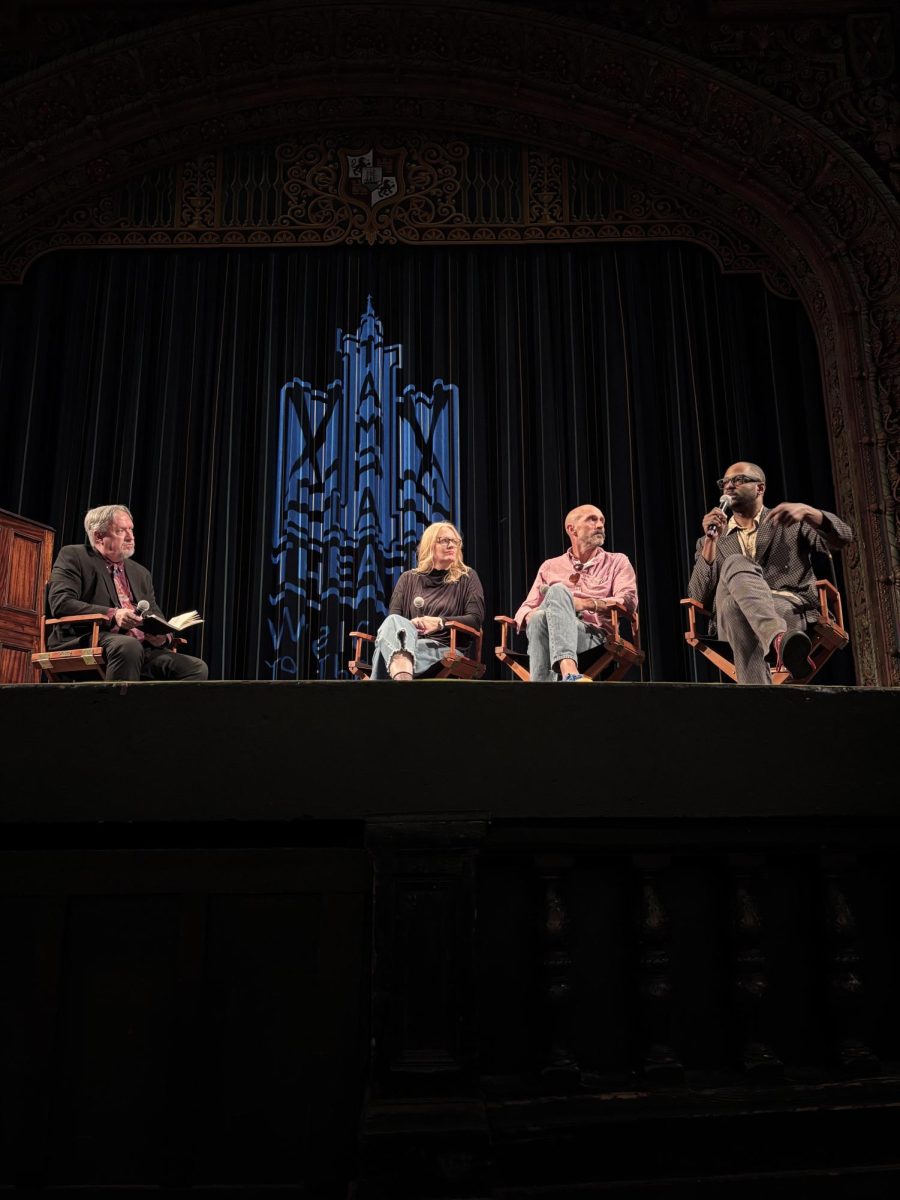If you’re a movie lover, you haven’t lived until you’ve seen a director speak in person. I had that opportunity on March 22 when the director of the Florida-local movie “Nickel Boys,” RaMell Ross, came to Tampa Theatre for a film showcase and Q&A.
“Nickel Boys” was originally a book by Colson Whitehead, following the story of two Black boys, Elwood and Turner, as they endure the horrors of a brutal reform school in Jim Crow-era Florida, exposing systemic abuse and its lasting scars. Set in Tallahassee, the story has a lot of local appeal, which I’m assuming is why Ross decided to come to Tampa.
Labeling many of these victims as “criminals” would be a cruel exaggeration. Most were hauled in for minor infractions and met with punishment that far outweighed their offenses. To the public eye, it was simply a reform school, teaching the unruly youths their lesson, but only those at the schools knew the true horrors of what took place at these prisons. The worst offenses were brutal beatings and sexual abuse, but the most common crime was far quieter: forced, unpaid labor.
For years, those who knew the truth said nothing. That changed in the 2010s when unmarked graves began to be uncovered by the dozen. As the story gained attention, Whitehead wrote “The Nickel Boys,” a novel based on the real-life Florida reform school. In 2025, Ross adapted it into a film.
When I first saw the movie in theaters before the event, I wasn’t immediately won over. Ross made the bold choice to film entirely through the protagonist’s eyes, a decision that sparked a heated debate between my dad and I about what a movie should provide outright versus what the audience should interpret. I argued that certain elements need to be given for a film to be enjoyable. To me, it felt more like a visual art piece than a traditional movie. But my perspective shifted once I heard Ross explain his approach.
Ross spent most of the discussion breaking down this idea—that we’re in a crisis of thought, and slow cinema could be the cure. Instead of fast-moving plots and big twists, slow cinema relies on subtlety, making the audience do the thinking. Ross believes people have gotten used to being told exactly what to think, paying for a director to lay everything out for them. He refuses to make films that way, choosing instead to let viewers find their own meaning.
Although much of the Q&A were questions directed towards Ross, a substantial amount of time was given to the story itself. To answer these questions, forensic anthropologist Dr. Erin Kimmerle and journalist Ben Montgomery were also present, whose investigation into Florida’s Dozier School for Boys first inspired the novel “Nickel Boys.” Hearing their perspectives, having lived with this story for many years and actually having spoken to many of the boys from these “schools,” was very powerful.
If we’re going to talk about power, I think it’s about actively experiencing the interracial dynamics in the room and seeing how different people react to a story like this, especially in a place like where we live. Growing up in the South, many white people in the 50’s and 60’s were raised to be racists, and films like “Nickel Boys” work to challenge that. That’s the real power of risky movies like this, showing them in public spaces and allowing audiences to witness growth through different perspectives.
I’ll never forget that day. It was a rare opportunity to hear a truly gifted director delve into their craft. I can only hope more films that actually have something meaningful to say follow in its wake. The world could use more of this kind of cinema.
Although “Nickel Boys” earned a Best Picture nomination at this year’s Oscars, it wasn’t a box office success, which ties back to what Ross mentioned about what audiences say they want versus what they actually pay for. So, here’s a challenge: try stepping outside your comfort zone. Watch films that don’t spell everything out for you; you might find they stay with you longer.



MyNejia Milsaps • Apr 16, 2025 at 8:08 pm
This is a really good story, and well thought out. I’ve actually heard that this show is based on a true story about the “Dozier School for Boys”. Supposedly that school was very negative, harmful and abusive to the boys who attended. It’s honestly such a horrific and terrible thing to have happen to a kid, I hope all of those kids were able to move on and find some positive and good times in their life. But this was a good story, and I’m glad you had fun!